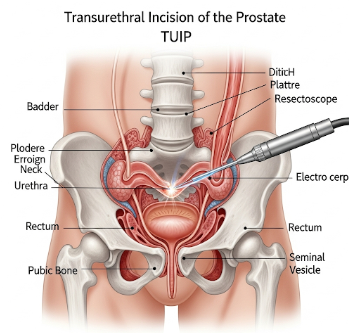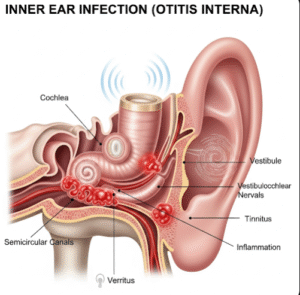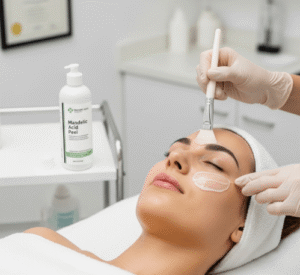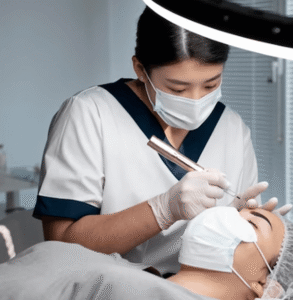Overview
Transurethral Incision of the Prostate (TUIP) is a minimally invasive surgical procedure used to treat benign prostatic hyperplasia (BPH), which is an enlargement of the prostate causing urinary obstruction. TUIP involves making small incisions in the prostate to relieve pressure on the urethra, improving urine flow without removing prostate tissue.
In Korea, TUIP is offered at advanced urology centers using modern endoscopic technology and precision instruments, allowing short hospital stays, rapid recovery, and effective symptom relief.
What is TUIP?
TUIP is a minimally invasive procedure performed through the urethra using a resectoscope. Instead of removing prostate tissue (as in TURP), the surgeon makes one or two small incisions in the prostate gland to widen the urethral passage.
Indications include:
- ✦ Moderate to severe urinary symptoms due to BPH
- ➤ Men with smaller prostates (generally <30 grams)
- ✦ Difficulty in urination, weak stream, or incomplete bladder emptying
- ➤ Patients unsuitable for more invasive prostate surgery
Benefits include:
- Relieves urinary obstruction
- Minimal removal of prostate tissue
- Shorter operative time and faster recovery
- Reduced risk of sexual dysfunction compared to TURP
What are the Benefits?
✅ Minimally invasive with small incisions
➤ Rapid improvement in urinary flow
✅ Shorter hospital stay and recovery period
➤ Lower risk of complications such as retrograde ejaculation or erectile dysfunction
✅ Effective for small to medium prostate enlargement
Procedure Details
1) How should I prepare for TUIP?
- ✦ Preoperative evaluation: urine tests, PSA, ultrasound, and uroflowmetry
- ➤ Review medications, particularly blood thinners
- ✦ Fasting for 6–8 hours before surgery
- ➤ Discuss anesthesia options (general or spinal) with your urologist
2) What happens during the procedure?
- ✦ Performed under spinal or general anesthesia
- ➤ A resectoscope is inserted through the urethra
- ✦ One or two small incisions are made in the prostate to relieve urethral pressure
- ➤ Continuous saline irrigation keeps the surgical field clear
- ✦ Procedure duration: typically 20–40 minutes
- ➤ No prostate tissue is removed, minimizing bleeding and post-operative complications
3) What happens after TUIP?
- ✦ Hospital stay: usually 1–2 days
- ➤ A temporary catheter may be placed to help urine drainage for 1–2 days
- ✦ Pain is usually mild and controlled with medications
- ➤ Patients can resume normal activities within 1 week
- ✦ Follow-up includes urine flow tests and check-ups to ensure symptom relief
Risks / Benefits
Possible Risks:
- Infection or urinary tract irritation
- Mild bleeding in urine
- Temporary difficulty in urination
- Rare complications: urethral stricture or need for repeat procedure
- Possible retrograde ejaculation
Benefits:
- Rapid symptom relief with minimal tissue removal
- Short operative time and recovery
- Low risk of sexual dysfunction
- In Korea, experienced urologists and advanced endoscopic equipment maximize safety and outcomes
Recovery and Outlook
- ✦ Most patients can resume normal activities within 1 week
- ➤ Urinary flow improvement is often immediate
- ✦ Mild discomfort or urgency may persist for a few days
- ➤ Regular follow-up ensures optimal long-term outcomes
- ✦ Korean hospitals provide comprehensive post-operative monitoring and patient education
When To Call the Doctor
⚠ Persistent or worsening pain while urinating
⚠ Blood in urine or infection symptoms (fever, chills)
⚠ Difficulty in urination after catheter removal
⚠ Signs of urinary retention or bladder discomfort
Best Korea Option / Process
Korean hospitals offer world-class TUIP care, including:
- ✦ Experienced urologists specializing in minimally invasive prostate surgery
- ➤ Modern endoscopic equipment and high-definition visualization
- ✦ Short hospital stays with rapid recovery programs
- ➤ Comprehensive pre- and post-operative care including medication and catheter management
- ✦ Multidisciplinary support for older patients or those with comorbidities
- ➤ English-speaking coordinators for international patients
Highlights of TUIP in Korea
- ✅ Minimally invasive treatment for urinary obstruction due to BPH
- ➤ Small incisions, no tissue removal, and rapid recovery
- ✅ Effective symptom relief and improved urine flow
- ➤ Reduced risk of sexual dysfunction compared to traditional surgery
- ✅ Experienced Korean urologists and comprehensive follow-up care













